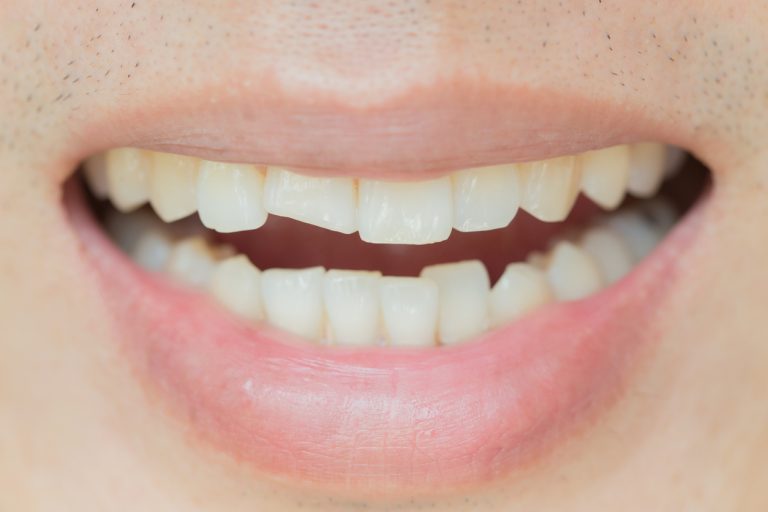Your teeth are built to last, but because we use our teeth constantly, they are bound to get some wear and tear over the course of your life. Any amount of damage or physical trauma to the face can certainly knock your teeth out of alignment, or out of your skull altogether. Even the more minor injuries, like a cracked tooth, should be addressed and treated right away.
A cracked tooth has sustained damage on the enamel, the protective coating over your teeth. This leaves the tooth exposed to a number of other harmful elements and can bring about symptoms of pain and discomfort. When you are in a bind, your emergency dentist in Glendora is available to you at any time. Keep reading for more information about what a cracked tooth means, as well as the proper way to get it treated.
Cracked Vs. Chipped
If you recently sustained an injury after a round of contact sports, or you fell and hit your tooth on a surface, your tooth may be more than just cracked. A chipped tooth is incredibly common, but it accounts for actual pieces of the tooth that are broken and missing. On the other hand, a cracked tooth has visible damage, but the tooth is still whole.
Symptoms of a Cracked Tooth
If you have cracked your tooth, you may be feeling symptoms such as:
- Pain when chewing or biting
- Discomfort when exposed to hot or cold temperatures
- Pain when releasing pressure after biting
- Radiating pain
A cracked tooth can occur for a variety of reasons. Biting down too hard on food and getting a physical injury are the two biggest causes of a cracked tooth. It can sometimes be difficult to diagnose a cracked tooth, as some cracks are nearly invisible to the naked eye.
Dentists have specific tools they can use to investigate your tooth and diagnose a crack. They may use a magnifying glass or something known as a dental dye, which temporarily colors your tooth, making it easier to see the small cracks and grooves that may exist there.
Treating a Cracked Tooth
There are a number of different treatments available to fix a cracked tooth. Depending on the location, nature, and severity of the crack in your tooth, our experts at Glendora Family Dentistry will recommend personalized care. Some patients require fillings or crowns, while others require more serious treatments such as a root canal procedure (if the crack has made it down to the root of the tooth). According to the American Association of Endodontists, your dentist will always prioritize saving your tooth over everything else.
Can A Cracked Tooth Heal?
Unfortunately, once you have a crack in your tooth, it cannot fully heal. Contrary to popular belief, a tooth is not bone, and it cannot repair itself in the way a broken bone fuses back together. Even after you are treated, you may experience the cracks reopening in the future.
Treatment is important to reduce pain and discomfort. It will also prevent your tooth from developing more serious conditions out of an untreated crack; for example, an untreated tooth can make way for decay, bacteria, and infection. If you are worried about whether or not the cracks in your teeth will reopen, you may benefit from an investment in a dental crown. This places a cap over your tooth to protect it against any further damage.
Get Emergency Dental Services Whenever You Need Them!
Dealing with dental injuries is no fun. And the longer you wait for treatment, the more your symptoms can worsen. Prevent further damage and decay to your mouth by telling your local dentist about your cracked tooth. Many treatment options can help you restore function to your tooth and get rid of those pesky symptoms. For more information, schedule an appointment with Glendora Family Dentistry today.







